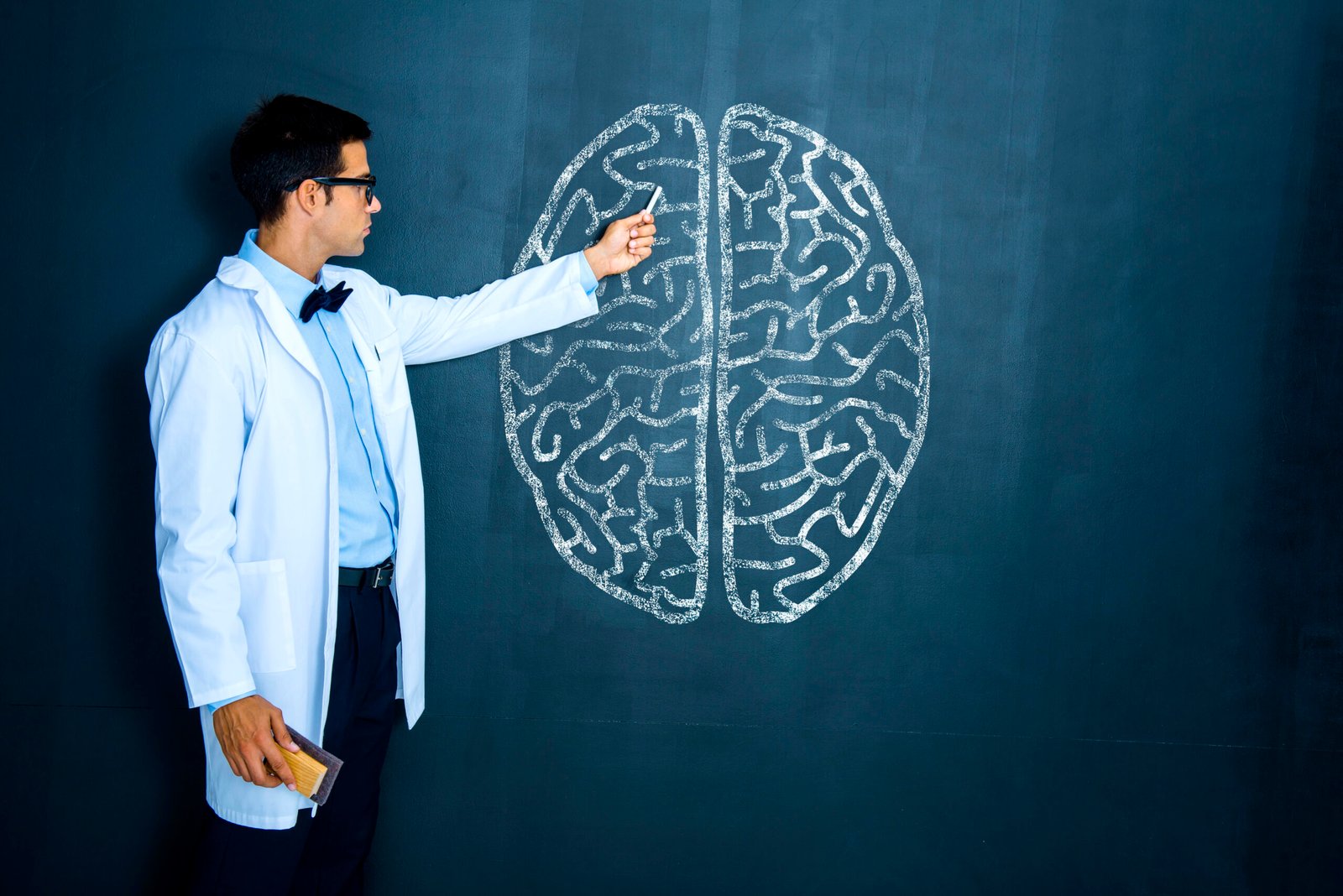Brain health is one of the most important aspects of overall well-being. A healthy brain allows you to think clearly, remember information, make better decisions, and stay emotionally balanced. Just like the heart or muscles, the brain also requires care, nourishment, and exercise to function at its best. In this article, we will explore what brain health means, the factors that influence it, habits that protect memory and cognition, and proven strategies to keep your mind sharp at any age.
What Is Brain Health?
Brain health refers to the ability of your brain to perform its everyday functions effectively. It involves memory, focus, learning, emotional balance, and problem-solving skills. A healthy brain is not only free from disease but also resilient against age-related decline and stress. Good brain health helps people stay independent, productive, and socially engaged throughout life.
Why Brain Health Matters
The brain controls everything we do, from breathing and moving to complex thinking and emotional processing. Maintaining brain health reduces the risk of conditions such as dementia, Alzheimer’s disease, and depression. It also improves quality of life by enhancing creativity, emotional stability, and decision-making. With longer lifespans and more stressful lifestyles today, protecting brain health has never been more important.
Key Factors That Influence Brain Health
Several factors shape how well your brain functions:
-
Nutrition: The food you eat directly fuels your brain and affects memory and concentration.
-
Physical activity: Regular exercise increases blood flow and oxygen to the brain, supporting cognitive function.
-
Sleep quality: Deep, restful sleep is essential for memory storage and brain repair.
-
Mental stimulation: Learning new skills and solving problems strengthens neural connections.
-
Stress levels: Chronic stress damages brain cells and affects mood and memory.
-
Social interaction: Staying connected with others promotes emotional well-being and brain resilience.
Nutrition and Brain Health
Food is the foundation of brain performance. Diets rich in vegetables, fruits, whole grains, nuts, seeds, and omega-3 fatty acids support memory and learning. The Mediterranean diet, which emphasizes fish, olive oil, and plant-based foods, has been linked to lower risks of cognitive decline. On the other hand, processed foods, excess sugar, and trans fats can harm brain cells and reduce focus. Nutrients such as B vitamins, antioxidants, vitamin D, and magnesium also play an important role in brain function.
The Role of Exercise in Brain Health
Exercise is not only good for the body but also for the brain. Physical activity increases blood circulation, delivers oxygen and nutrients to brain cells, and stimulates the release of chemicals that improve mood and protect neurons. Aerobic exercises like walking, running, or cycling are especially effective in boosting memory and focus. Strength training and yoga also contribute to mental clarity and stress reduction.
Sleep and Memory Function
Sleep is when the brain organizes and stores memories. During deep sleep, new information is processed and transferred from short-term to long-term storage. Poor sleep affects concentration, mood, and learning. Adults should aim for 7–9 hours of quality sleep every night. Good sleep hygiene, such as limiting screen time before bed and maintaining a consistent bedtime routine, strengthens brain health.
Mental Stimulation and Lifelong Learning
Just like muscles, the brain grows stronger with regular use. Mental stimulation encourages the growth of new neural pathways and helps preserve cognitive ability. Reading, writing, playing musical instruments, learning languages, and solving puzzles keep the mind active. Even small habits like trying a new recipe or playing memory games can protect against cognitive decline.
Stress and Brain Function
Chronic stress leads to the release of cortisol, a hormone that damages brain cells and reduces memory function. Long-term stress has been linked to depression and anxiety. Effective stress management through relaxation techniques, meditation, deep breathing, and hobbies helps the brain recover and stay resilient. Mindfulness practices also strengthen focus and emotional regulation.
The Importance of Social Connection
Human brains are wired for connection. Isolation and loneliness negatively impact memory, attention, and mood. Studies show that people with strong social ties have lower risks of Alzheimer’s disease and other forms of dementia. Social activities like group discussions, community events, or even video calls with family stimulate the brain and protect against cognitive decline.
Brain Health Across the Lifespan
Brain health is important at every stage of life.
-
Children and teenagers: Proper nutrition, physical activity, and learning experiences help build a strong foundation for cognitive growth.
-
Adults: Balancing work, rest, and social life is key to maintaining mental sharpness.
-
Seniors: Brain exercises, social engagement, and healthy habits slow age-related decline and reduce risks of dementia.
Habits That Damage Brain Health
Certain lifestyle choices harm brain function over time. Excessive alcohol consumption, smoking, lack of physical activity, poor diet, and chronic sleep deprivation weaken memory and focus. Excessive screen time and multitasking can also overload the brain, leading to reduced attention span. Avoiding these habits is as important as adopting positive ones.
Brain Training and Technology
In recent years, digital tools and apps for brain training have become popular. These include memory games, puzzles, and cognitive exercises designed to sharpen attention and recall. While they cannot prevent brain diseases, they may improve processing speed and problem-solving abilities. However, combining brain training with real-life skills such as learning music or speaking a new language is more effective.
Medical Conditions That Affect Brain Health
Several health conditions directly impact the brain. Hypertension, diabetes, obesity, and heart disease reduce blood flow to the brain and increase the risk of strokes. Mental health disorders like depression and anxiety also influence memory and concentration. Regular checkups, early diagnosis, and effective treatment of these conditions are vital for long-term brain health.
The Role of Genetics in Brain Health
Genetics can play a role in brain diseases such as Alzheimer’s, but lifestyle choices are equally important. Even if someone has a family history of cognitive decline, adopting healthy habits can significantly reduce the risk. Studies show that maintaining a healthy lifestyle delays the onset of genetic risks and enhances brain resilience.
Supplements for Brain Health
Some people use supplements such as omega-3 fatty acids, ginkgo biloba, vitamin B12, and nootropics to support memory and focus. While some supplements may help, they should never replace a healthy diet and lifestyle. It is important to consult healthcare professionals before taking any brain health supplements to ensure safety and effectiveness.
Protecting Brain Health in the Digital Age
Modern lifestyles involve heavy use of smartphones, computers, and social media. While technology can enhance learning, overuse can lead to digital fatigue, stress, and reduced concentration. Balancing screen time with offline activities such as exercise, reading, and face-to-face interaction is essential for protecting brain health.
Future of Brain Health Research
Brain research is advancing rapidly. Scientists are studying neuroplasticity—the brain’s ability to reorganize and adapt throughout life. Emerging treatments such as brain stimulation, advanced imaging, and AI-driven health tools may soon transform how we prevent and treat brain disorders. With continuous research, the future holds promising solutions for protecting cognitive health.
Practical Tips for Daily Brain Care
-
Eat a balanced diet rich in vegetables, fruits, and omega-3s.
-
Exercise for at least 30 minutes most days of the week.
-
Sleep 7–9 hours regularly.
-
Challenge your brain with new skills and activities.
-
Manage stress with mindfulness and relaxation.
-
Stay socially connected with friends and family.
-
Limit alcohol, smoking, and processed foods.
Final Thoughts
Brain health is the foundation of a fulfilling life. By adopting healthy habits in diet, exercise, sleep, and social interaction, anyone can strengthen memory, focus, and emotional well-being. Small, consistent changes today can lead to lasting benefits, protecting your brain from decline and keeping your mind sharp for years to come.

